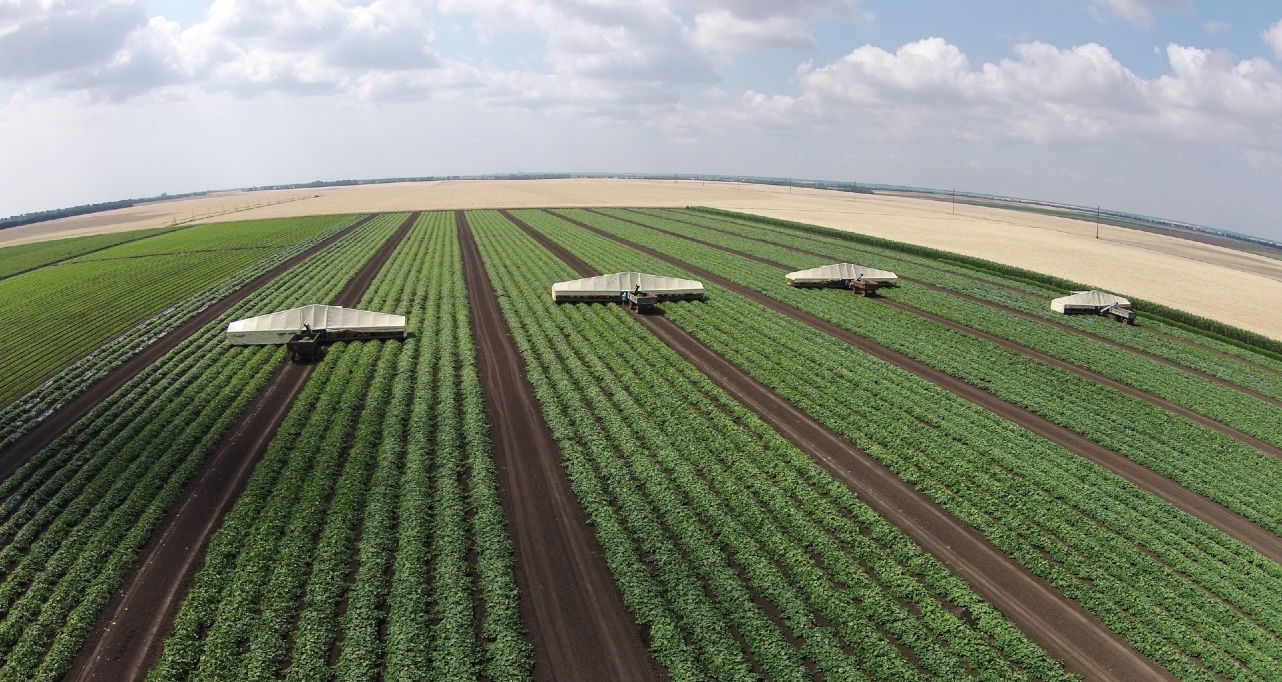Evrika has cut energy consumption and reduced costs while maintaining production volumes in wartime
The southern part of Ukraine is known as the planet’s “tomato belt”.
It is also the home of Evrika, a vegetable-growing and processing company which has been feeding Ukrainian families since 1987. What started as a small cooperative has grown into a vertically integrated business producing dozens of different products under the “Babushkiny Gryadki” (“Grandma’s Beds”) brand. The firm produces everything from tomato paste to canned peas and beans – and even hummus, which is quite unusual for Ukrainian consumers.
“For 38 years, we’ve stayed true to one principle, making only high-quality, affordable food products,” says Alexandr Yakovlev, co-owner of Evrika. “We grow carefully selected vegetable varieties, use only the best certified European plant protection products, and handle harvesting and processing ourselves to minimise delays. Our canned goods contain no chemical additives – just safe, natural ingredients.”
But making high-quality food in wartime Ukraine is not an easy task.
War and other challenges
Russia’s full-scale invasion in 2022 didn’t halt Evrika’s operations – at least, not immediately. “February isn’t our busiest time of year. It’s mostly preparation – seedlings, seeds, field planning,” Alexandr says. “We didn’t stop working.”
Still, logistics quickly became fragile, and the bigger threat came later with disruptions to infrastructure. “No electricity means no production. We had to act fast, so we bought a powerful generator,” he says. “It burns about 200-250 litres of diesel per hour. It’s expensive, but we had no choice.”
Water for irrigation is another critical issue. “To grow vegetables here, you need water – and that is dependent on pumping stations on the Dniester. If they lose power, the water stops. And without water, there’s no harvest,” Alexandr explains.
Evrika installed diesel pumps and storage tanks to weather short outages. “If there’s water in the tanks, we can irrigate for two to three days. But if the outage lasts longer, we simply can’t manage alone.”
In 2024, these challenges led to real losses. The company lost at least 30 per cent of its harvest because it couldn’t irrigate on time.
This is why Evrika is planning to install a 450-kilowatt solar power plant – to reduce its long-term costs and reliance on unstable infrastructure. “If all goes well, we’ll complete the project this year,” Alexandr says. “That will be a big step towards energy independence.”
But the price of survival has delayed growth. “We were ready to launch a corn-processing project a few years ago, but all the money had to go into generators, diesel pumps and backup systems. We simply had no choice.”
Labour shortages prompt automation
One of the biggest challenges facing the company isn’t enemy fire, but a lack of labour.
“Vegetable processing is labour- and capital-intensive,” Alexandr explains. “You can’t grow tomatoes today and sell them tomorrow. You invest for over a year before you see a return. And it’s hard, physical work. There just aren’t enough people to do it any more.”
To adapt, Evrika turned to automation – with support from the European Bank for Reconstruction and Development (EBRD) and the European Union (EU).
A loan from a local bank, plus a grant totalling 15 per cent of the loan amount through the EU4Business-EBRD Credit Line, helped Evrika to modernise its sterilisation processes – a key component of production that ensures food safety and maximises shelf life without adding chemicals.
“Before, workers had to load heavy jars into baskets by hand – it was exhausting,” Alexandr explains. “Now, we have automated production lines and modern European equipment. We have gone from 80 workers in that area to just 8, and those jobs are now safer and more skilled.”
The upgrade served two critical purposes: maintaining production volumes and cutting energy consumption. Sterilisation requires a lot of steam, and the new equipment cuts energy use by at least 20 per cent.
“Energy will not become cheaper in the coming years. To keep prices reasonable for consumers, we have to reduce our own costs. This upgrade helps us to do that.”
The company had just suffered damage from a wave of missile attacks. Consequently, the support came at a critical juncture, with the grant enabling Evrika to ease the financial burden of reconstruction after the attacks.
Looking ahead
Evrika is constantly experimenting with new products – peeled cherry tomatoes, large beans, chickpeas and even canned hummus.
Their next big project is sweetcorn in glass jars – a premium, eco-friendly product that few others in Ukraine are selling.
“We believe that good food should be honest and accessible,” Alexandr says. “And with the right support, we can keep delivering that – even during the most difficult times.”




